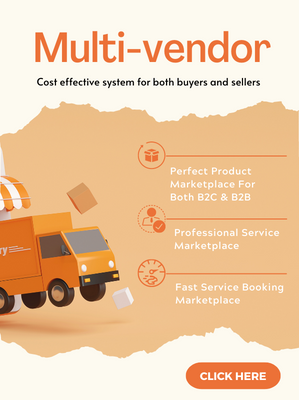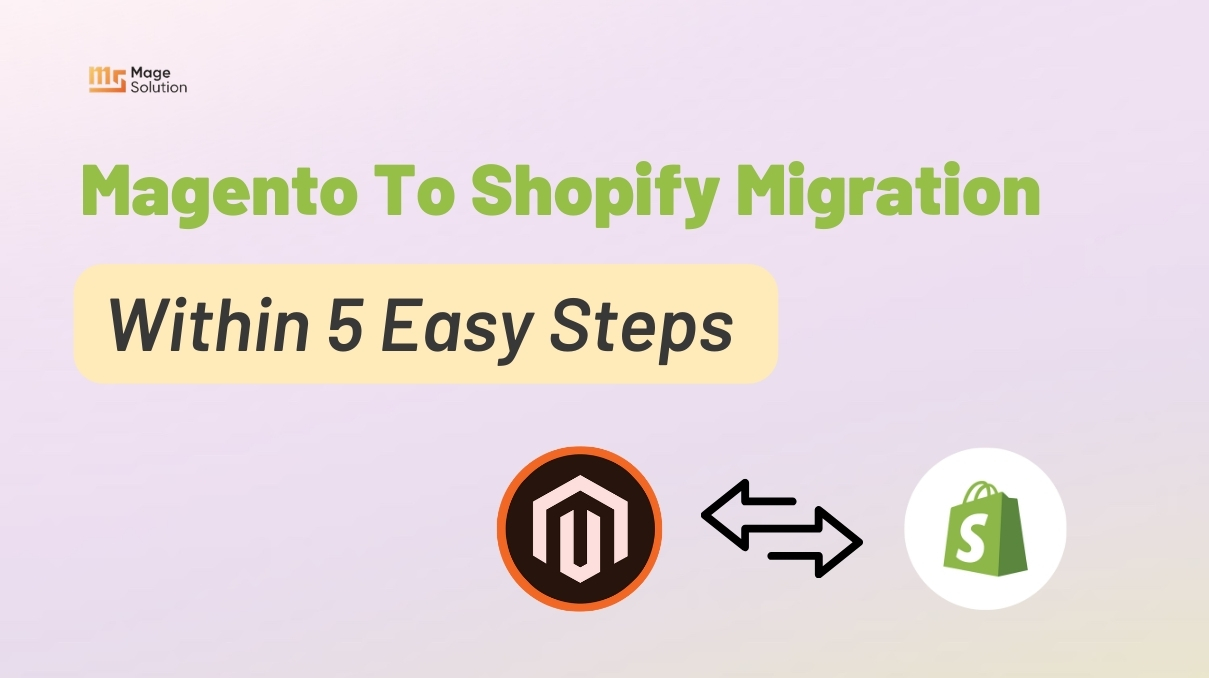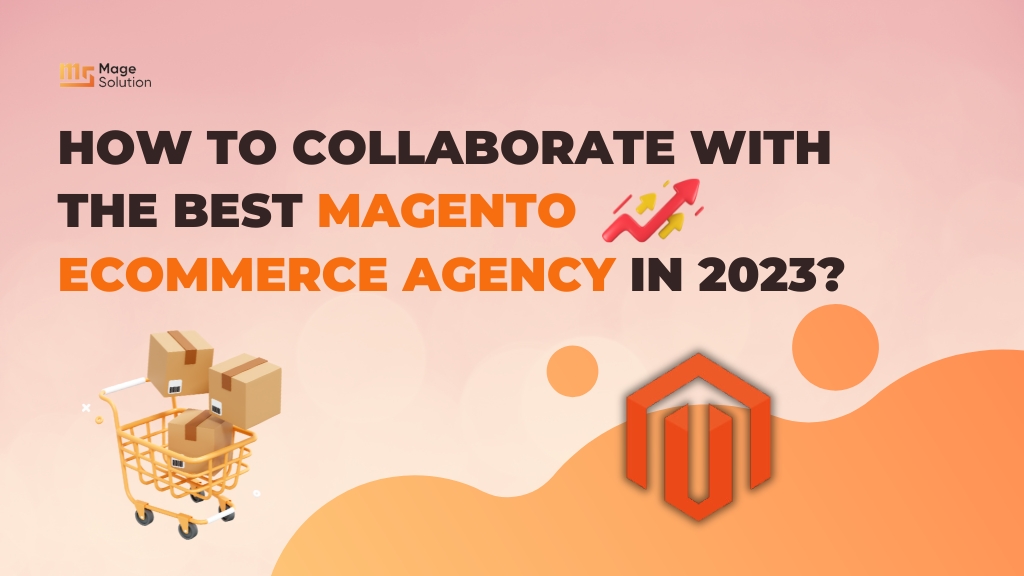With the latest release of Magento 2.3.5, the platform itself has become more and more popular. It has currently been utilized by thousands of companies, ranging from small businesses to enterprises. Lauded for its strong community and its high performance, Magento is one of the best content management systems for e-commerce. Merchants can choose between two versions of the platform: Magento Open Source and Magento Commerce.
While fundamentally the same at the code base level, Magento Commerce comes with more features than Magento Open Source. Companies, no matter what they choose, it still brings about the most benefit to your business. So now, we – MageSolution would like to show to you guys some of the most notable differences between these two. After reading this article, we hope that you guys can choose the best option. But first, let’s go to some definition.
What is Magento Commerce and Magento Open Source and differences between them?
Magento Commerce is previously known as Magento Enterprise Edition (EE), which is, in theory, aimed at larger organizations. This option requires premium support levels and a broader set of functionality. The cost would be a license fee that starts at $24,000 per year. It is offered in the form of Magento Cloud.
A free version to download of Magento Commerce is Magento Open Source. Magento Open Source has long been a popular choice for SMB merchants. This option can offer a feature-rich, highly extensible platform that can compete with the big names online. However, any additional features can often be found and added using extensions.
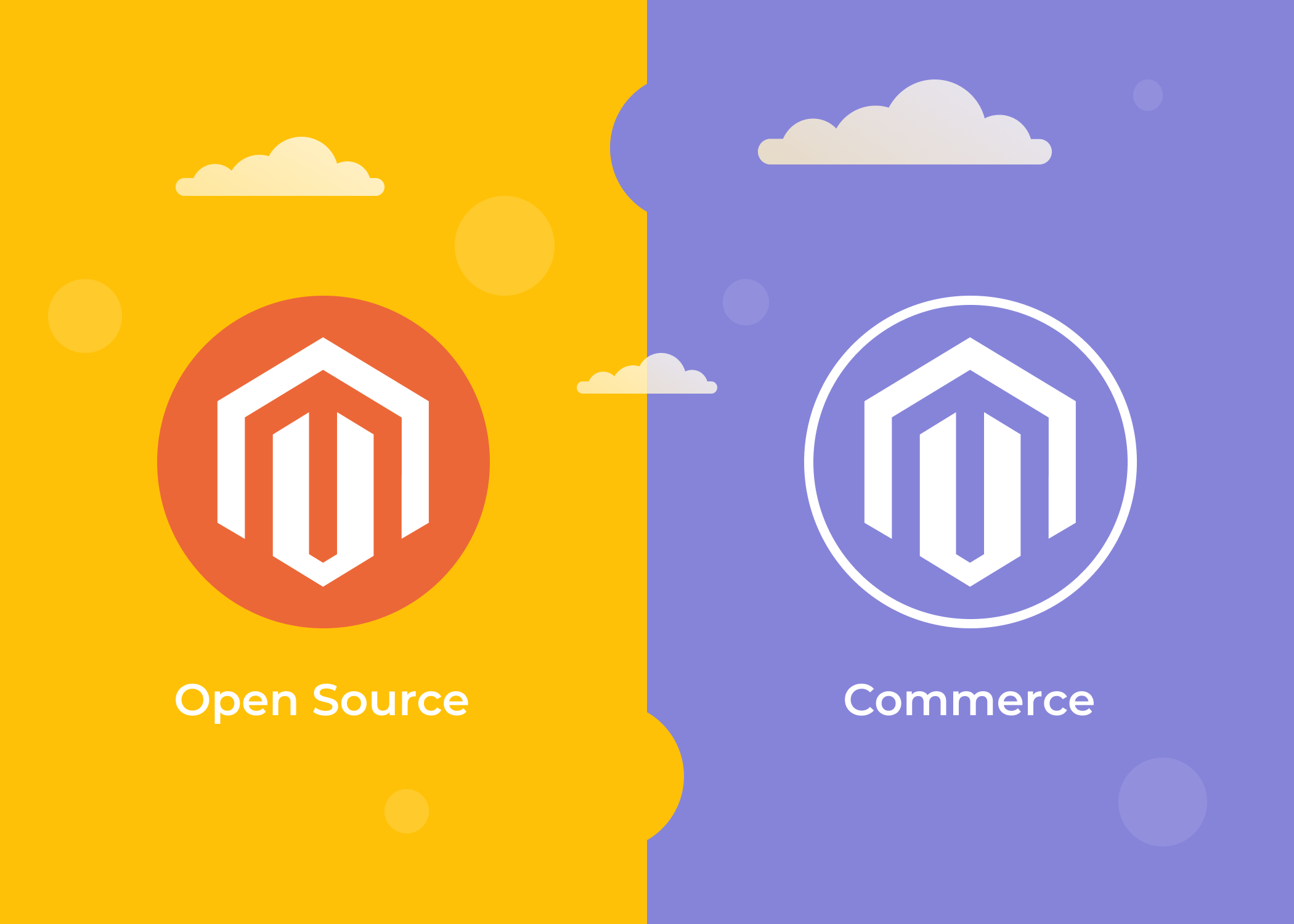
Once you have decided which direction, it’s not that hard to choose. So, let’s compare the differences.
1. Notable features
Both have features that will help your online business grow. A key difference between these two Magento options is that with Magento Commerce, merchants have more features available, and they do not need to use extensions to access these features. It offers tools like rewards points, gift registry, and store credits to help with building customer loyalty.
This option also has features that maximize a company’s potential for personalization. While Magento Open Source allows users to create customer groups, Magento Commerce goes further by enabling users to utilize custom customer traits. This, as a result, allowing for targeted marketing and promotions. If you have a small online business, Open Source edition might be right for your company. The larger will be left to the Commerce edition.
2. The Cloud solutions
One difference between Magento Open Source and Magento Commerce is that the latter offers cloud hosting and cloud solutions. With these capabilities, your company can take advantage of fast loading, using a content delivery network and global availability. Customers will have less down or waiting time on your website. As a result, this will help them have a more positive experience browsing your site.
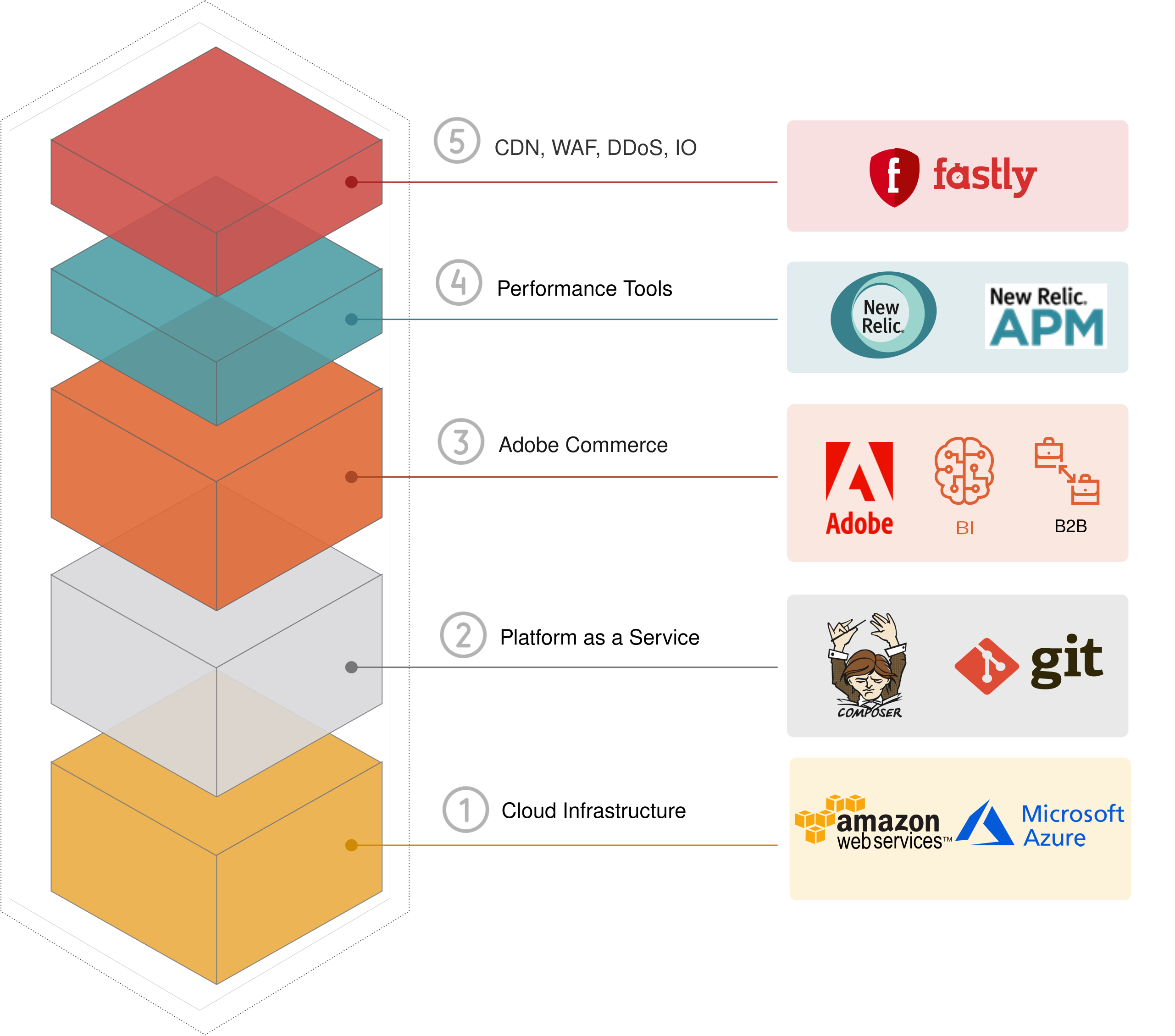
The cloud solutions
The cloud also makes for easy global deployment, so you are able to sell your products quickly and have a worldwide reach. Your website will be more secure with cloud enhanced updates, data, and security upgrades and patching. Cloud hosting opens limitless possibilities for developers to create and customize features. So, it is easier to find developers to help enhance your website. Overall, Magento Commerce wins this round.
3. Security and scalability
Magento Commerce provides reliability and security to merchants. They do not need to worry about the infrastructure of their websites. The Commerce edition comes with performance and scalability features. This may include multiple master servers, order archiving, scalable backend product management and MySQL customer support.
These tools will allow you to focus on the day-to-day operations of your online business. Magento Open-Source tools, however, can’t perform this task. The Commerce tools will allow your company to stay secure while it becomes increasingly scalable.
4. Data management of Magento Commerce and Magento Open Source
The two editions allow users to consolidate data and use that information to drive sales. However, there is a notable difference in the power of each version’s data capabilities. This option utilizes cloud technology to allow users to view and analyze their data instantly no matter where they are located.
This edition also allows for custom data visualizations. Additional data features are provided by Magento Business Intelligence, a data management system that is automatically included with the Commerce edition. If you want to have an easy way to track and analyze data for your e-commerce business, Magento Commerce is probably a good fit for you.
5. Cost of the editions
Another difference between the two options is cost. Magento Open Source is free, and it has many useful features that are easy to implement with an e-commerce website. Magento has a well-developed marketplace tailored for merchants. This can offer additional free and paid features that can be used with Magento Open Source.
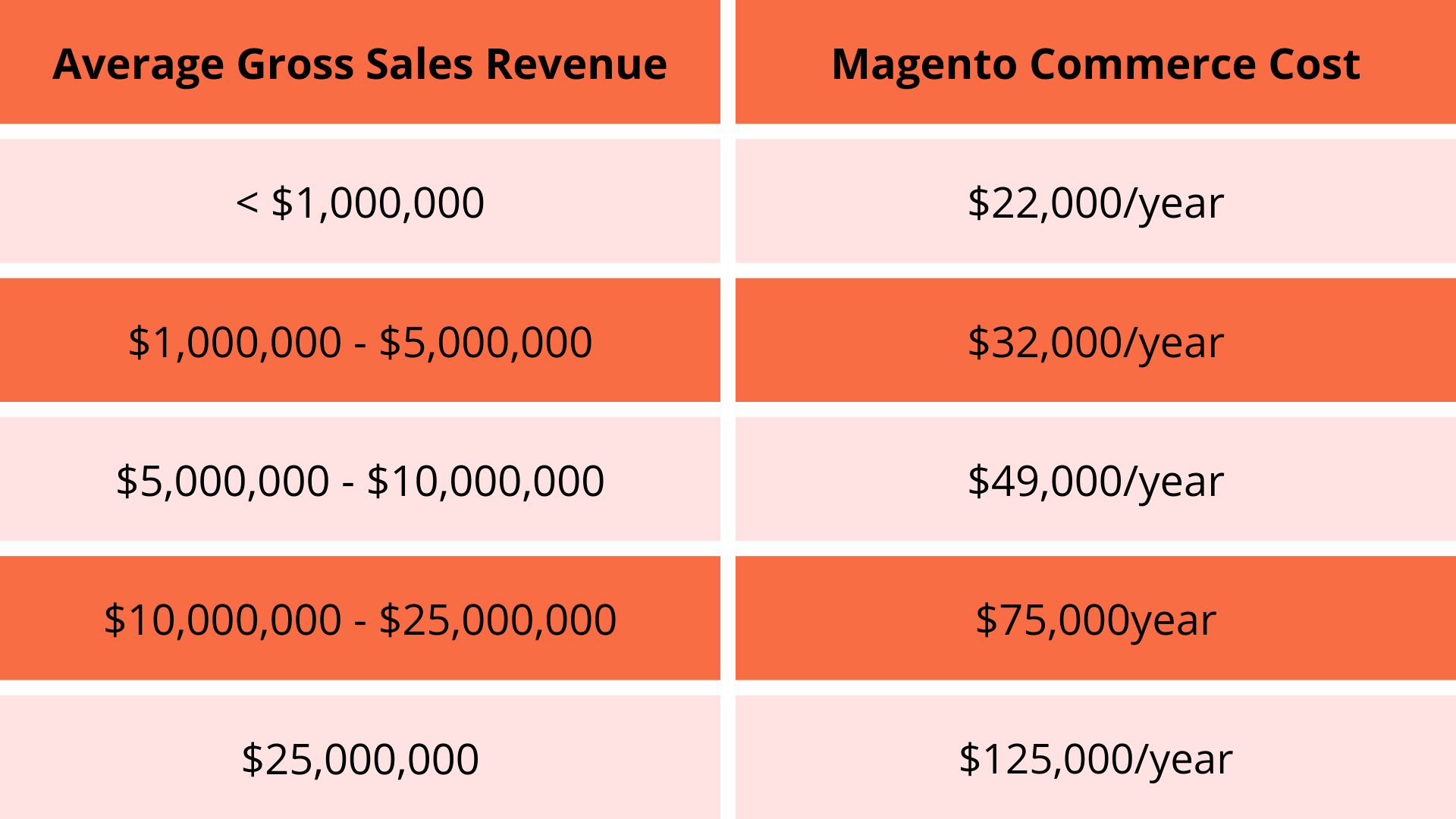
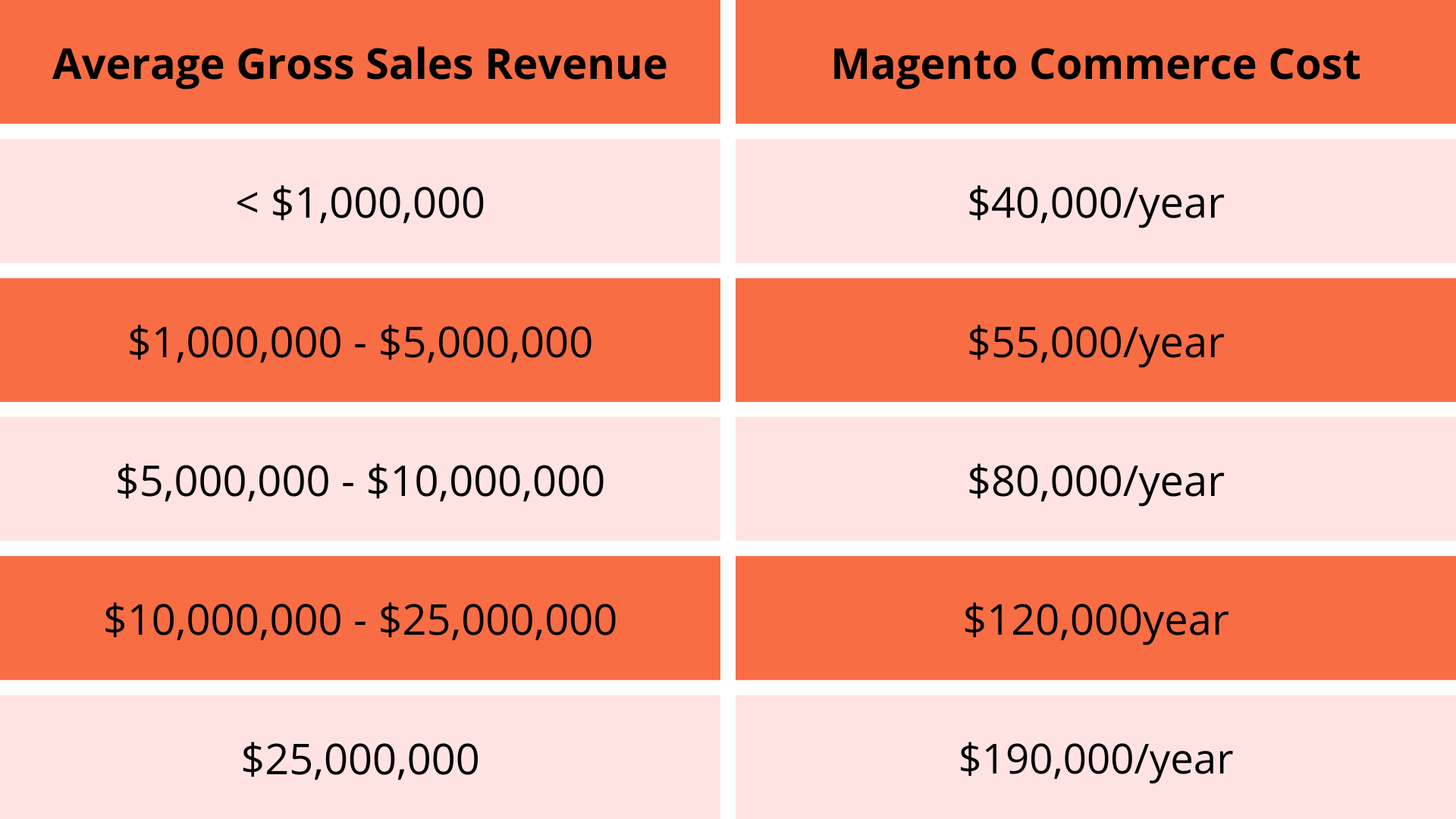
Magento Commerce costs more upfront, and your total costs will vary depending on your online company’s revenue. With Magento Commerce, higher revenue means an increase in annual fees. If your company is small, you might think that Magento Open Source a better option for your business. However, if you have a large company with a high turnover, it might be more cost-effective to start out with Magento Commerce.
Which Magento 2 Edition is best for your business?
We have compared the two Magento 2 versions. Now, let’s see which version will work best for your business model. The Magento Commerce version provide more powerful functions. However, Open Source is easily customized with a large of modules. With the Open Source edition, you only use the extensions you need. The Magento Commerce edition is best suitable for large-scale businesses. If you need support from the vendor, Magento Commerce works well .
To select the best Magento edition for your business model, analyze your requirements. Some essential funtions to consider are:
- The price-performance of the Magento version
- The size of your business
- Number of transactions
- Budgets
- Target revenue
- Technical support
Cross-check your demands with the services provided by Magento edition.
Who suits Magento 2 Open Source the best?
Magento 2 Open Source is the best suitable for all kinds of businesses. It comes with a low cost of entry. Therefore, all business with smaller budgets can also choose the Magento platform. They don’t lose remarkable amounts of money with open source. Moreover, the Open Source provides for you all the features necessary. You can build an efficient ecommerce store for retailers and small businesses. So, if you want an affordable platform, Magento Open Source is a perfect choice.
Who is Adobe Commerce best for?
Adobe Commerce is best suited for enterprise-level businesses that have large product catalogs and a global presence. Besides, this edition supports for more than 10 million transactions and needs direct contact with the vendor. Adobe Commerce is a perfect choice for such business. Moreover, the Commerce edition also comes with B2B tools for business that work in the B2B environment.
By using this flatform, you can reach out-of-the-box features from Magento including content management and consumer segmentation. Adobe Commerce provides more stability for global stores. Moreover, it also provide a centralized platform for business intelligence and accounts management. Magento Commerce edition will enable more personalization and hybrid B2B/B2C tools.
Final words
That should be it! Here are some of the main differences that you should know about the two editions. By reading this article, you should be able to choose the best option for your business. If you’d like help getting your ecommerce website up and running or taking your ecommerce business to the next level, consider our website development services and Magento Development Packages. With experiences and expertise cultivated throughout the years that we have been deep in the e-commerce world, we can build with a business model and roadmap that match your requirements. Contact us for a free consultation!
